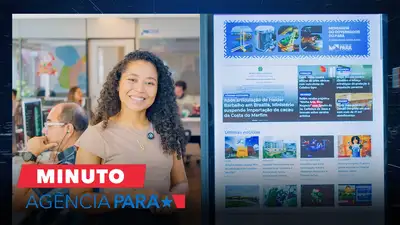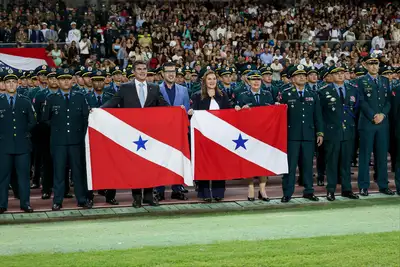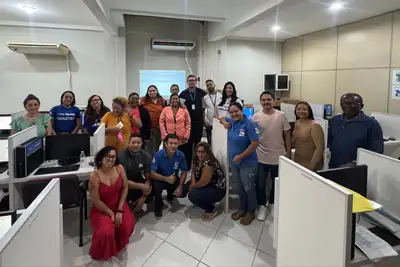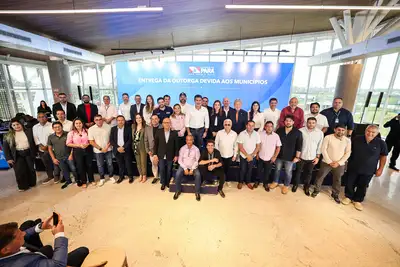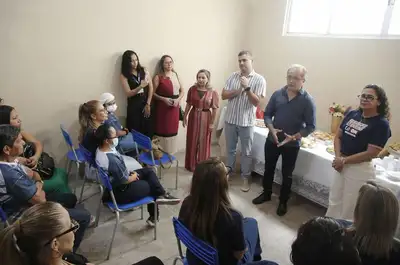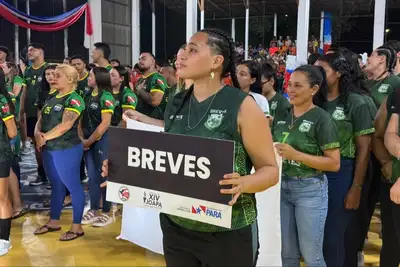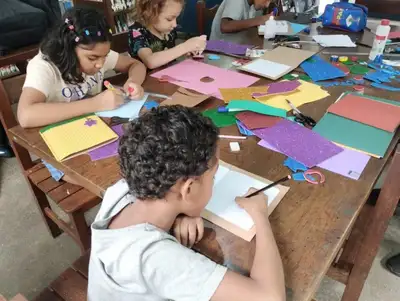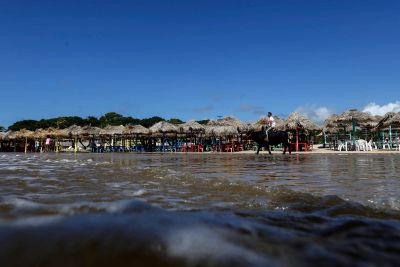Students from Pará create ecological panels and take project to the national final of the Samsung award
The work proposes the creation of acoustic and decorative panels produced from waste of cassava peels and chicken eggs to promote the well-being of students with Autism Spectrum Disorder (ASD) in school units.
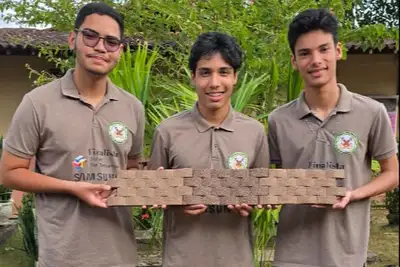
The State School Padre Marino Contti, located in the municipality of Mãe do Rio, northeastern Pará, stands out nationally as one of the finalists of the 12th edition of Solve for Tomorrow Brazil, a Corporate Citizenship program by Samsung Brazil, which encourages students and teachers from public schools to develop innovative solutions based on the STEAM approach (Science, Technology, Engineering, Arts, and Mathematics), aimed at the real demands of communities.
With the project "Production of ecological panels from residual composite formed by cassava peels and chicken eggs," developed by students Caíke Pinheiro, Kaio Vinícius, and Paulo Kleber, under the guidance of professor Antônio Denílson da Silva, the work proposes the creation of acoustic and decorative panels produced from waste of cassava peels and chicken eggs to promote the well-being of students with Autism Spectrum Disorder (ASD) in school units.
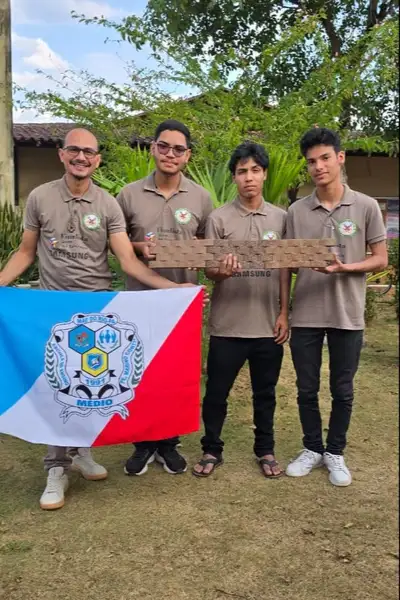
Professor Antônio Denílson, the project's advisor, emphasizes that "the project utilizes waste from cassava peels and chicken eggs for the production of ecological acoustic and decorative panels, aiming to promote the well-being of students with ASD in the school environment. Participating in the award represents a significant achievement for the Padre Marino Contti School. Despite all the challenges faced, we reached the finals of one of the largest awards for innovation, science, and sustainability in the country."
It is the only project from a state public school in Pará among the ten finalists, selected from 3,600 proposals submitted across Brazil.
The team is now competing for the title of "Highlight Project" by the Popular Jury, with voting open until next Saturday (28), allowing unlimited votes on the official website of the program.
In this edition, the Northeast and North regions stood out, with four and three finalist teams, respectively. Pará led nationally among the states, with selected projects from Marabá and Mãe do Rio.



